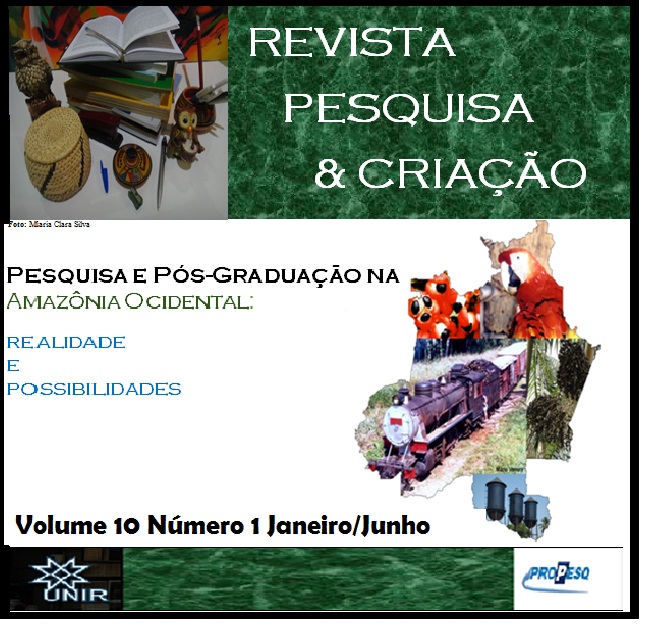A condição contemporânea da filosofia da natureza / The contemporary condition of the philosophy of nature
Resumo
O objetivo deste trabalho é compreender as dificuldades teóricas envolvidas no desenvolvimento de uma Filosofia da natureza contemporânea. Para isso, parte-se da explicitação das concepções que deram origem a essa disciplina. Em especial, salienta-se a visão totalizante e teleológica de Aristóteles, que faz a natureza conter em si também o mundo humano, inclusive na sua dimensão ética. Em seguida, mostra-se como na noção agostiniana de livre arbítrio está implicado um esvaziamento da natureza, no sentido de que ela é reduzida a uma exterioridade de Deus, que se põe como referência teleológica e moral única. Na parte central do trabalho, mostra-se como a modernidade esvaziou a Filosofia da natureza tanto de seu conteúdo quanto de seu método, ao reduzir seu objeto a uma máquina, sobre a qual não se deve refletir filosoficamente, mas apenas investigar instrumentalmente. Embora a modernidade filosófica pretendesse restabelecer a ponte entre a subjetividade e a natureza, religando as margens desse abismo aberto pela necessidade da crítica das concepções anteriores, tal projeto nunca pode ser completado, principalmente pelo imperativo de a ciência solidificar-se ideologicamente como uma abordagem não filosófica da natureza. Por fim, mostra-se que a necessidade de uma Filosofia da natureza faz-se presente no contexto contemporâneo, a partir da emergência da bioética, da repercussão política cada vez maior das questões ambientais e da crítica à metodologia científica vinculada ao mecanicismo moderno. Ela é necessária, mas ao mesmo tempo não pode abandonar a noção central do projeto moderno: a criticidade.
Palavras-chave: Filosofia da natureza. Teleologia. Mecanicismo. Criticidade.
ABSTRACT: The objective of this paper is to understand the theoretical difficulties involved in the development of a contemporary Philosophy of Nature. For this, we start from the clarification of the concepts that gave rise to this discipline. In particular, we stress the totalizing and teleological view of Aristotle, for whom nature contain within itself also the human world, including its ethical dimension. Then, we show how in the Augustinian notion of free will is implied a movement of emptinessing of the nature, in the sense that it is reduced to an exteriority of God, who stands as the only teleological and moral reference. In the core of the work, we present how Modernity emptied the Philosophy of Nature both in its content as in its method, by reducing its object into a machine on witch on should not reflect philosophically, but only to investigate instrumentally. Although the philosophical Modernity presumed to restore the bridge between subjectivity and nature, connecting the edges of this abyss opened by the need for criticism of earlier conceptions, such a project can never be completed, especially because of the science imperative that solidifies itself ideologically through a non philosophical approach of nature. Finally, we show that the need of a Philosophy of Nature is part of the contemporary context, from the emergence of the Bioethics, the increase of the political impact of environmental issues and criticism of scientific methodology linked to Modern mechanicism. It is necessary but at the same time cannot abandon the central concept of Modern project: the criticality.
Keywords: Philosophy of Nature. Teleology. Mechanicism. Criticicality.
Downloads
Downloads
Edição
Seção
Licença
1. Proposta de Política para Periódicos de Acesso Livre
Autores que publicam nesta revista concordam com os seguintes termos:
- Autores mantém os direitos autorais e concedem à revista o direito de primeira publicação, com o trabalho simultaneamente licenciado sob a Creative Commons Attribution License que permitindo o compartilhamento do trabalho com reconhecimento da autoria do trabalho e publicação inicial nesta revista.
- Autores têm autorização para assumir contratos adicionais separadamente, para distribuição não-exclusiva da versão do trabalho publicada nesta revista (ex.: publicar em repositório institucional ou como capítulo de livro), com reconhecimento de autoria e publicação inicial nesta revista.
- Autores têm permissão e são estimulados a publicar e distribuir seu trabalho online (ex.: em repositórios institucionais ou na sua página pessoal) a qualquer ponto antes ou durante o processo editorial, já que isso pode gerar alterações produtivas, bem como aumentar o impacto e a citação do trabalho publicado (Veja O Efeito do Acesso Livre).

